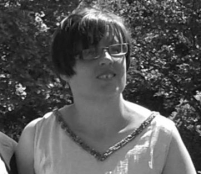Here is another brilliant piece from the excellent Robin Bunce, who has written a number of pieces about complementarianism and “The Future of Complementarity” conference run by Think Theology recently (you can find them HERE) . He is a historian of ideas based at Homerton College, University of Cambridge. He has written on politics and contemporary culture for the Huffington Post, the Guardian, the Independent, and the New Statesman.
Following THINK 2018, we’re closer to answering the question ‘what is complementarity?’ The answer is genuinely interesting.
During THINK 2018’s final session, the following ideas crystallised:
- Complementarity reflects the ‘beautiful difference’ between women and men – a difference that means women and men are not interchangeable.
- The speakers seem to accept the essential theology of complementarianism.
- The speakers, to varying degrees, rejected much of the practice of complementarianism.
- Complementarity is both ‘softer’ and ‘broader’ than complementarianism as it has been preached and practiced over the last thirty years.
- It’s ‘softer’ in the sense that it’s advocates want women to play a much more significant role in church life than they have in previous complementarian settings.
- It’s ‘broader’ in the sense that, while complementarianism has focused on the church and the home, complementarity is conceived as the basis for the whole of society.
- Some of the speakers saw considerable overlap between their vision of Christian life and that of egalitarians, although there was push back against embracing ‘functional egalitarianism.’
- Advocates of complementarity see the church as a family, rather than a corporation – which, they argue, has tended to be the model for complementarian churches. Therefore, they argue that there must be a place for fathers and mothers, brothers and sisterswithin church life.
Thinking historically, I’d make two points about the nature of complementarity. First, complementarity grows from the progressive aspects of complementarianism. Complementarianism, is sometimes characterised as anti-feminist. This, however, is only half the picture. The intent behind complementarianism, was clearly anti-feminist. Nonetheless, the architects of complementarianism accepted the feminist argument that women should flourish, and the Evangelical feminist case that ‘Both Adam and Eve were created in God’s image, equal before God as persons’. Today, Evangelicals take this for granted, but in 1988 this was radical. Indeed, although it is sometimes claimed that ‘Christians have always believed that men and women are both made in the image of God’, this is palpably false – at least in the most obvious sense of the statement. Anyone familiar with the teaching of Tertullian, Augustine of Hippo, Thomas Aquinas, Martin Luther, or even preachers as recent as John R. Rice will recognise the tradition in Christian theology, which runs from the second century to the twentieth, that argues, albeit in different ways, that men alone truly bear God’s image.
Rather than thinking of complementarianism as anti-feminist, it’s perhaps better to think of it as postfeminist – particularly in the context of Britain, where complementarianism has developed along softer lines than in America. Kristin J. Aune’s ethnography ‘Postfeminist Evangelicals: the construction of gender in the New Frontiers International churches’argues just this. This means that it is possible to challenge the power of men, by appealing to complementarian principles. Indeed, it was interesting that speakers at THINK 2018 appealed to arguments recognisable from the last century of feminist thought. The notion that women and men must both be involved in decision making and governance because they are different, articulated by Jen Wilkin and Phil Moore, was precisely the position taken by the suffragists and other first wave feminists at the beginning of the twentieth century. Similarly, Jen Wilkin’s argument for equal pay for equal work reflects the concerns of second wave of feminism, which emerged in the 60s. And her analysis of how male privilege works in complementarian practice is informed by even more recent feminist discourse. These arguments could be made by people who have identified as complementarian, precisely because complementarianism as it was originally articulated from 1988-1991 conceded considerable ground to feminists, inside and outside the church.
Second, complementarity reflects, albeit obliquely, more recent concerns about people who identify as transgender, gender queer, gender fluid, or gender non-binary. These were the concerns at the heart of the highly controversial Nashville Statementof 2017, of which the conference organiser Andrew Wilson is a signatory. Indeed, while speakers at the conference were repeatedly unable to define what ‘beautiful difference’ meant in a positive sense, they could define it negatively. By this I mean that although none of the speakers could say what masculinity and femininity are, they could say what they are not: ‘beautiful difference’ means that women and men are notinterchangeable. Indeed, Alastair Roberts’ suggestion that men and women should refer to each other as ‘Mr’ and ‘Mrs’ in the work place surely reflects the concern about how trans people are addressed, articulated by John Piperand implied in Article 11 of the Nashville Statement.
While the broad outlines of complementarity are clearer than they were a week ago, the last session revealed that a great deal is still to be resolved. The Q&A raised crucial theological issues: what is the nature of the ‘beautiful difference’ between men and women? Is God our mother andour father? What about 1 Timothy 2:13-15? In what sense is the earth our mother? And isn’t that a bit pagan? There were considerable differences of emphasis on the panel on some of these points. Turning to practical matters, Wilson admitted that he couldn’t give much in the way of detail. He also acknowledged that the speakers at the conference were divided on theecclesiological implications of the new doctrine.
There was, however, one extremely important piece of practical advice, and fittingly it was the statement that closed the conference. The most radical voices at the conference were women, and this was a radical statement. (Perhaps, and I’d be interested to hear Wilson’s thoughts on this, perhaps part of the ‘beautiful difference’ between women and men, is that women are the more radical sex?) A female speaker, who asked not to be named outside the conference, highlighted the need for repentance:
What do I think is the future of complementarity? I think, maybe not the future, but the path to the future, I think about things like corporate repentance; I think about prophetic lament; I think the path lies through a valley of lamenting and repentance – that starts personal, but has to have some kind of church wide expression. Just in the same way that we think about race issues, we have to grapple with our history. It’s no good to go, ‘We had that, and we had that for ages, and now we want to get there, so lets talk about solutions, lets talk about how the future looks different, lets jump right to how this looks in the nitty gritty.’ And I think that’s really frustrated a lot of people, men and women, because how can you go quickly from ‘it was always like this but now let’s have some women preach’, that’s so granular.
What we haven’t dealt with is a lot of pain from men and women, messages that they received from the church that were about gender worth . . . Whether it’s a large scale thing like misogyny or sexism, or racism, or whatever else, the path cannot jump right to solutions, the path has to lead through personal and corporate repentance . . .
She’s right.



 Sally Rush lives in Birmingham and works as a lay free church chaplain.
Sally Rush lives in Birmingham and works as a lay free church chaplain. Natalie Collins lives in Essex and works as a Gender Justice Specialist.
Natalie Collins lives in Essex and works as a Gender Justice Specialist.  Hannah Barr is a postgraduate student in Theology at Oxford University, specialising in Christian Ethics.
Hannah Barr is a postgraduate student in Theology at Oxford University, specialising in Christian Ethics. Dianna E. Anderson hails from Sioux Falls, South Dakota. After teaching English in Japan and working as a radio producer in Chicago, she is finishing her second Master’s – Women’s Studies – at Oxford University.
Dianna E. Anderson hails from Sioux Falls, South Dakota. After teaching English in Japan and working as a radio producer in Chicago, she is finishing her second Master’s – Women’s Studies – at Oxford University.